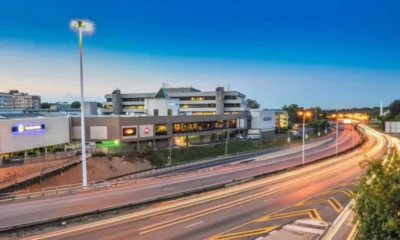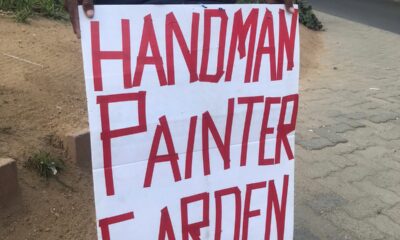Life Hacks
How to Save Money Each Month Without Even Trying: Joburg Life Hacks 2025

Joburg magic: saving without the stress
Every month in Joburg, there’s a way to tuck away cash, even if your budget feels tight. These everyday habits, rooted in South African reality, help you build savings without feeling deprived. Think of it as your very own financial superpower.
Pay yourself like a bill
Start by treating your savings contribution as non-negotiable. Automate a transfer of at least 10 percent of your earnings into a separate savings account first thing each month. That way, you’re saving by default, not as an afterthought. That habit helps build up your emergency fund, beat inflation, and eventually grow wealth over time through compounding interest.
Understand what you spend
Track your daily spending and review your recurring debit orders. Distinguish your true needs (rent, groceries, transport) from your wants (streaming services, take‑aways). The moment you start logging transactions, you’ll spot where your money drifts away and where to cut back.
Slash essentials costs the Joburg way
Groceries eat up nearly 18 percent of household expenditure in 2025, so meal-prepping and buying in bulk can shrink that vastly. Plan a week’s meals, avoid impulse buys, and shop specials only on things you already need.
Energy and utility costs are up, thanks to recent rises and loadshedding, so switching to LED bulbs, running appliances efficiently, and cutting geyser waste helps lower bills.
Reassess providers regularly
Each year you should review medical aid, insurance, and bank fees. In 2025, financial services are a standalone spending category in the inflation basket at about 10 percent, so negotiate or switch providers if you find better rates.
Rethink transport
Fuel remains expensive, and Joburg traffic unforgiving. Joining or organising lift clubs, informal carpool groups known locally as “hikes,” can cut commuting costs significantly. Studies show costs per km can drop by more than half compared with private car or minibus taxis.
Even walking or cycling shorter trips helps. With fares and fuel on the rise, these steps save cash and reduce wear and tear on your vehicle.
Pay debts proactively
If you have credit or card debt, pause discretionary spending and tackle high-interest balances first. Paying more than the minimum helps reduce interest and free up room in your budget faster.
Tap into local savings communities
Stokvels remain vital in South Africa’s savings culture: nearly half of adults participate. You and 11 friends can pool funds regularly, then take turns withdrawing a lump sum. This makes big purchases or unexpected costs more manageable and boosts accountability.
Start small and stay flexible
In January, after holiday splurging, many people shift to an “essentials only” budget. Ditch subscriptions, cook at home, set no-spend days, and sell unused items for extra cash. Decluttering helps your finances and your sanity.
Set achievable saving milestones
Set aside three to six months’ worth of expenses in a liquid emergency fund. Then, if you’re in a position to save more long-term, even a modest instalment plan can go far. For instance, if you save R1 000 monthly and increase contributions by 6 percent yearly with an estimated 6 percent return, you could reach R1 million in around 25 years.
Local insight and social reflection
Joburg has its own money-saving rhythm. People in neighbourhood WhatsApp or Facebook groups share grocery specials, lock in bulk buys, or organise lift clubs informally. There’s community pride in being resourceful. Social media often buzzes with photos of DIY home repairs or meal-prep bundles, proving you don’t need to sacrifice comfort to save.
Young professionals and families in Sandton, Alexandra, and Soweto share stories of using stokvel payouts to pay school fees, start small businesses, or make bond deposits. That communal financial resilience gets celebrated as much as individual efforts.
Why it matters in 2025
South Africa’s CPI was recalibrated in early 2025. Food prices now rank 18.2 percent of the inflation basket; transport is 13.9 percent. That recalibration reflects real daily budget pressure.
At the same time, economic growth has been sluggish: real GDP rose just 0.5 percent in 2024. Household spending ticked up barely 0.9 percent. In this landscape, saving deliberately feels less optional and more essential.
Fresh perspective for Joburg readers
Rather than framing savings as sacrifice, see it as small lifestyle tweaks rooted in local habits: ride-sharing with colleagues, trading cooking tips in your community WhatsApp group, bulk buying at local markets, or stokvel ordering. The point isn’t deprivation; it’s building a savings mindset that aligns with how people really live here.
Also read: Meal Prep Made Easy: Time-Saving Hacks for Every Joburger in 2025
Follow Joburg ETC on Facebook, Twitter, TikTok and Instagram
For more News in Johannesburg, visit joburgetc.com
Featured Image: Pexels


























